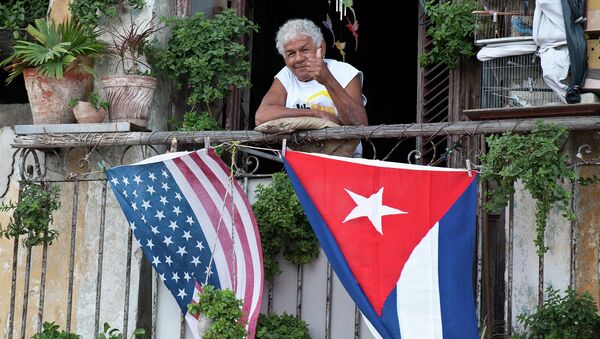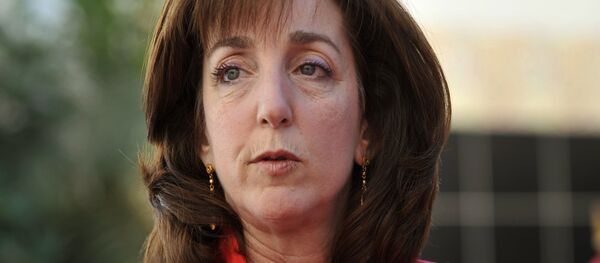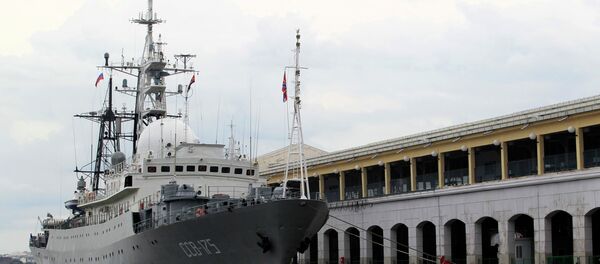"After more than half a century of deadlock, Cuba and the United States held their highest-level talks in decades…in Havana, [paving] the way towards restoring diplomatic ties and opening embassies, among other bilateral matters," Granma, the official daily of the Cuban Communist Party's Central Committee, noted.
In addition to the agreement to reopen embassies, the two-day series of closed-door meetings included discussions on combatting drug trafficking, terrorism, environmental disasters, and epidemics such as the Ebola virus.
However, the two countries' top diplomats also clarified areas of continuing disagreement, including US support for Cuban dissident groups.
Josefina Vidal, the Cuban Foreign Ministry's Director General for US Affairs, told AP on Thursday that the US Interests Section, the United States' diplomatic mission in Havana in lieu of an embassy, provides classes and training to Cuban dissidents, "and that isn't part of the recognized responsibilities of a diplomatic mission." Vidal called upon the US to stop "organizing, training, supporting, encouraging, financing and supplying small groups of people that act against the Cuban government and really represent the interests of the United States inside our country." She cautioned that "Cuba has never responded to pressure."
Vidal noted that while Cuba has not made the reduction of support for dissidents a condition of negotiations, "yes, we've said that that consideration, on Cuba's part, is associated with better behavior."
Cuba also insists that the US remove it from its list of state sponsors of terrorism list, and seeks the end of the Cuban Adjustment Act, which grants resident status to all Cubans arriving in the country, legally or not. On the latter matter the US has openly refused to budge.
The US delegation made clear that it would not stop pressuring the Cuban government on the country's alleged human rights violations, including the freedom of speech and assembly. Taking the point home, Jacobson held a breakfast meeting with Cuban dissidents on Friday before returning to the United States, Reuters reported. Vidal responded by commenting that "this is exactly one of the differences we have with the US government," adding that the dissidents are a "small group of people" who do not "represent Cuban society…[or] the interests of the Cuban people."
Re-Establishment, Not Normalization of Relations
In the lead up to the talks on Tuesday, a Cuban Foreign Ministry official stated that factually, the meetings this week were about the reestablishment of diplomatic relations, not their normalization. "Cuba isn't normalizing relations with the United States. Cuba is re-establishing diplomatic relations with the United States. The normalization of relations is a much longer process and is a much more complicated process," the official told Reuters on condition of anonymity.
Vidal expressed that she has "confidence in a better future for our countries….We have profound differences…but we have seen in the world that countries with profound differences can coexist peacefully and in a civilized way." Ultimately, Cuba's key concern remains that the US respect its right to an independent political choice. Shortly following the December 17 announcement on plans to normalized relations, Cuban President Raul Castro told his country's National Assembly that "in the same way that we have never demanded that the United States change its political system, we will demand respect for ours."





